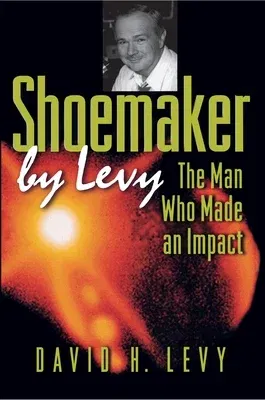It was a lucky twist of fate when in the early1980s David Levy, a writer
and amateur astronomer, joined up with the famous scientist Eugene
Shoemaker and his wife, Carolyn, to search for comets from an
observation post on Palomar Mountain in Southern California. Their
collaboration would lead to the 1993 discovery of the most remarkable
comet ever recorded, Shoemaker-Levy 9, with its several nuclei, five
tails, and two sheets of debris spread out in its orbit plane. A year
later, Levy would be by the Shoemakers' side again when their comet
ended its four-billion-year-long journey through the solar system and
collided with Jupiter in the most stunning astronomical display of the
century. Not only did this collision revolutionize our understanding of
the history of the solar system, but it also offered a spectacular
confirmation of one scientist's life work. As a close friend and
colleague of Shoemaker (who died in 1997 at the age of 69), Levy offers
a uniquely insightful account of his life and the way it has shaped our
thinking about the universe.
Early in his training as a geologist, Shoemaker suspected that it wasn't
volcanic activity but rather collisions with comets and asteroids that
created most of the craters on the moon and most other bodies in the
solar system. Convincing the scientific community of the plausibility of
"impact theory," and revealing its power for penetrating mysteries such
as the extinction of the dinosaurs and the timing of the Earth's
eventual demise, became Shoemaker's mission. Through conversations with
Shoemaker and his family, Levy reconstructs the journey that began with
a young geologist's serious desire to go to the moon in the late1940s.
Sent by the government to find a way to harvest plutonium, Shoemaker
instead found evidence in desert craters for what became his impact
theory. While he never became an astronaut, he did become the first
geologist hired by NASA and subsequently set the research agenda for the
first manned lunar landing.
After a series of victories and setbacks for Shoemaker, the collision of
Shoemaker-Levy 9 with Jupiter provided the most convincing proof to date
of the role of impacts in our solar system. Levy's explanation of the
scientific reasoning that guided Shoemaker in his career up to this
dramatic point--as well as his personal portrait of a man who found
white-water rafting to be an easy way to relax--sets these fascinating
events in a human scale. This biography shows what Shoemaker's legacy
will be for our understanding of the story of the Earth well into the
twenty-first century.

